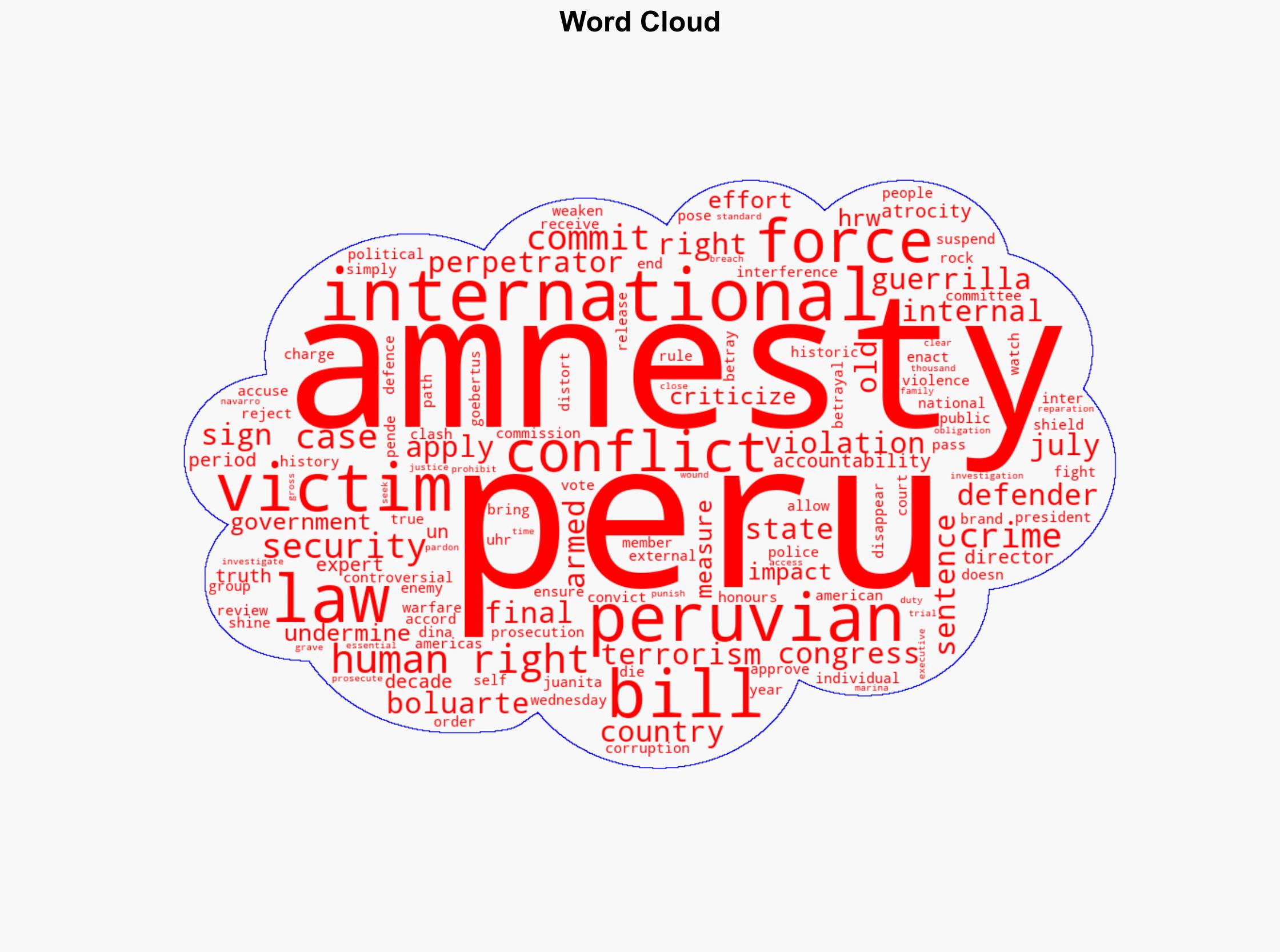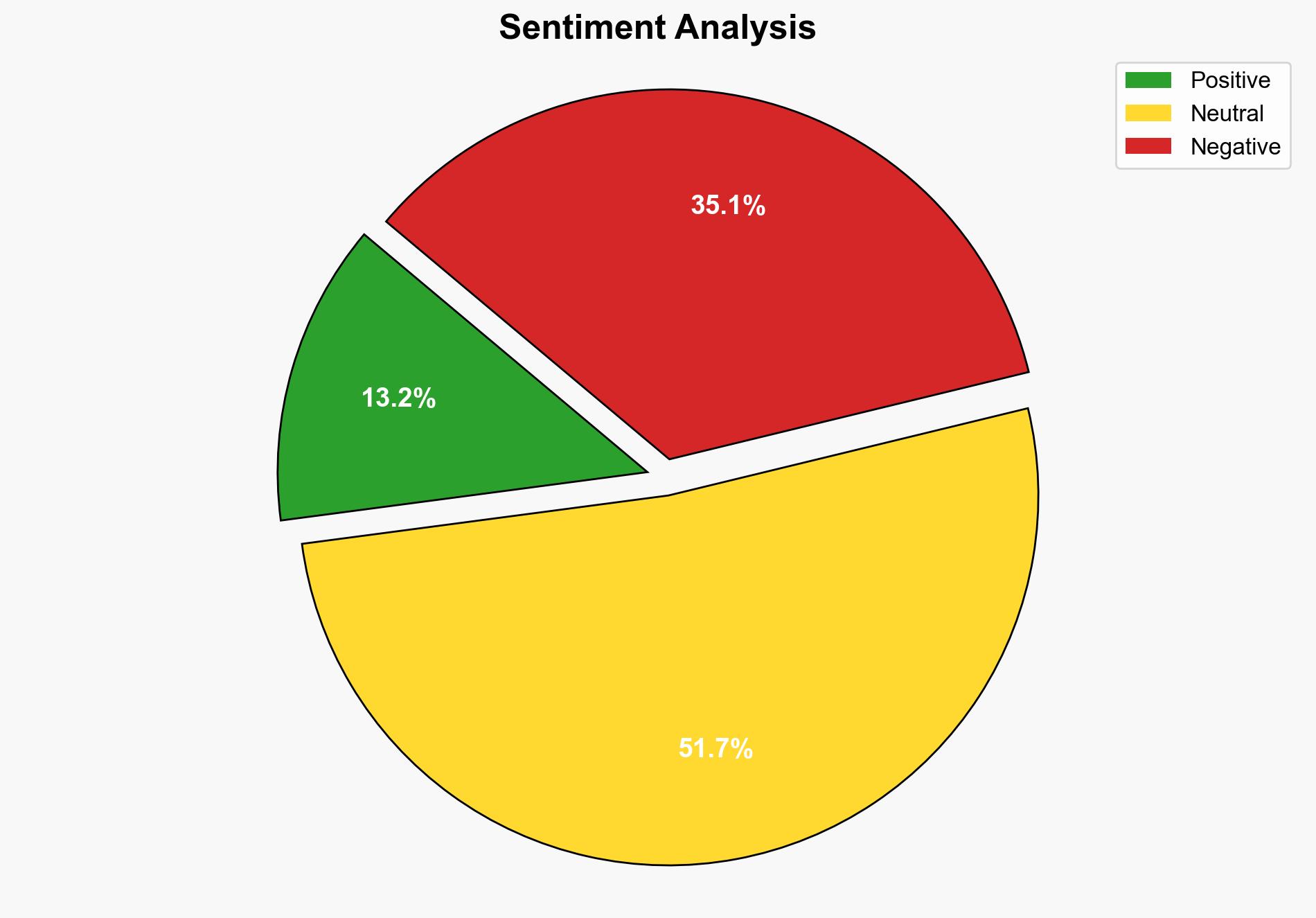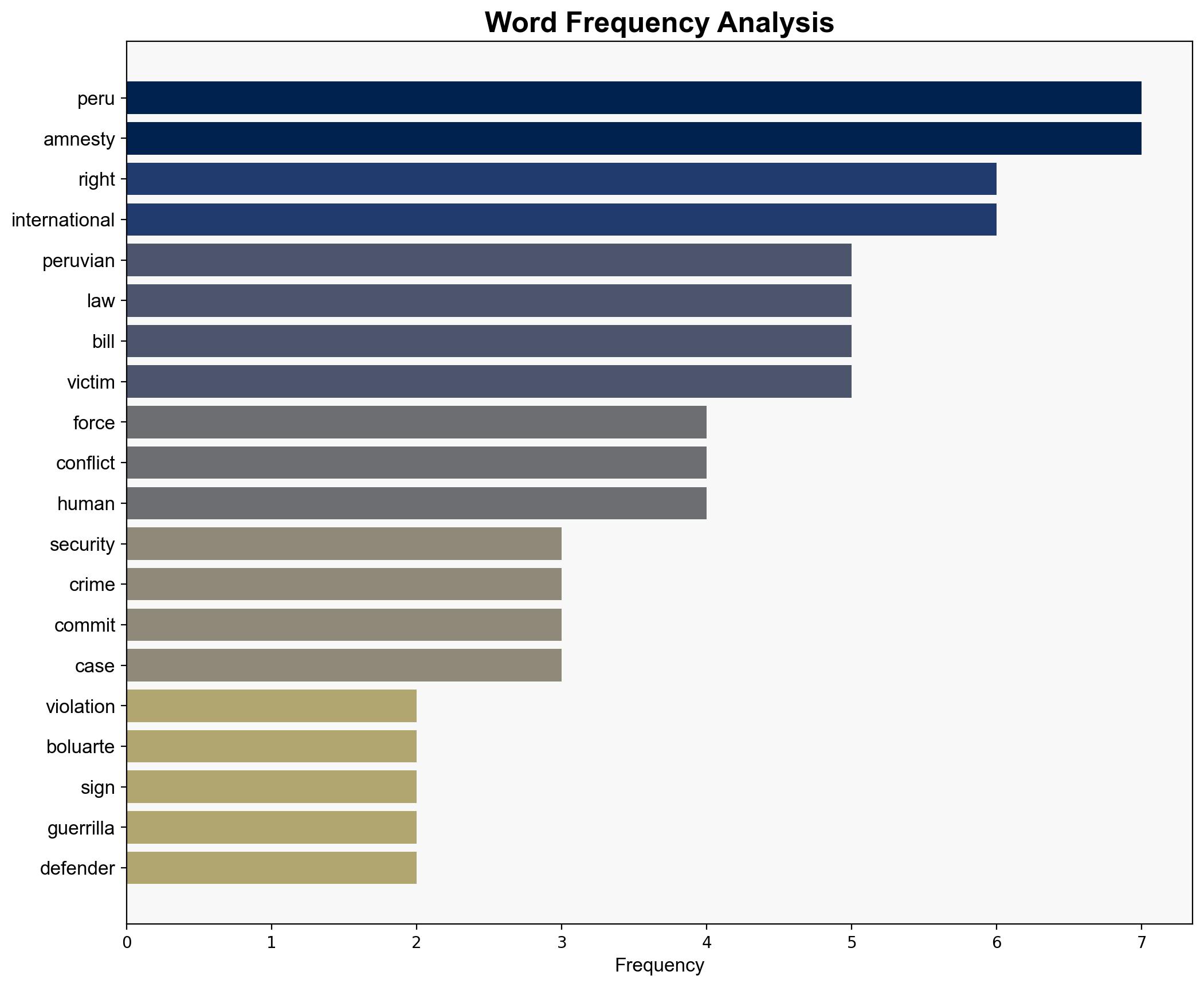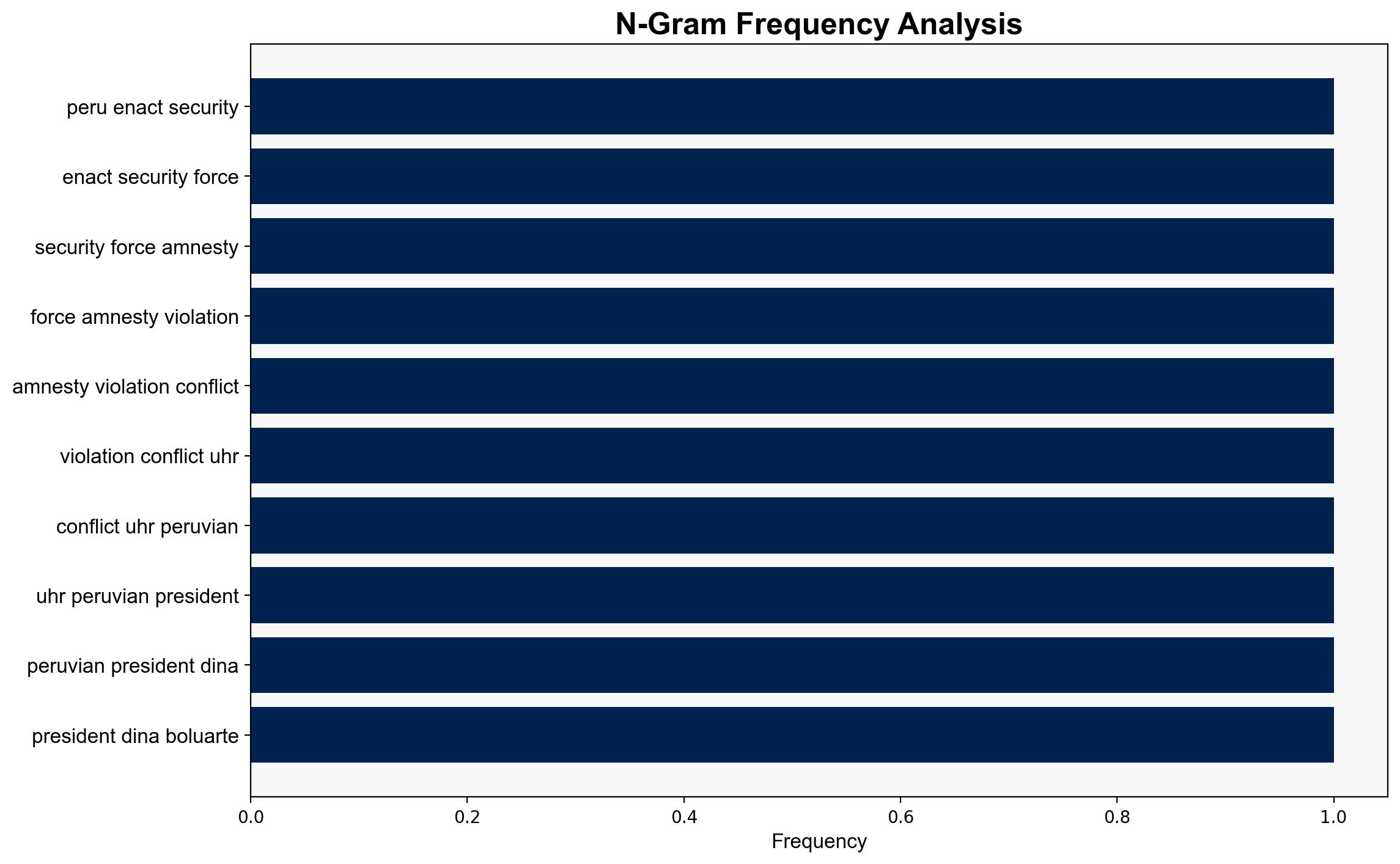Peru enacts security forces amnesty for violations during conflict – Dpa-international.com
Published on: 2025-08-14
Intelligence Report: Peru enacts security forces amnesty for violations during conflict – Dpa-international.com
1. BLUF (Bottom Line Up Front)
The enactment of an amnesty law in Peru for security forces involved in past conflicts is likely to exacerbate domestic tensions and undermine international relations. The hypothesis that this move is primarily aimed at consolidating internal power and shielding allies is better supported. Confidence level: Moderate. Recommended action: Monitor domestic unrest indicators and international diplomatic responses to anticipate potential escalations.
2. Competing Hypotheses
1. **Hypothesis A:** The amnesty law is intended to promote national reconciliation and close the chapter on past conflicts by protecting security forces from prosecution.
2. **Hypothesis B:** The law is a strategic maneuver by the current government to consolidate power by protecting allies within the military and police forces, potentially at the cost of international credibility and domestic stability.
Using ACH 2.0, Hypothesis B is better supported due to the timing of the law’s enactment, criticism from international human rights organizations, and the historical context of political manipulation in Peru.
3. Key Assumptions and Red Flags
– **Assumptions for Hypothesis A:** The government genuinely seeks reconciliation and believes amnesty will aid in healing national wounds.
– **Assumptions for Hypothesis B:** The government prioritizes political stability and control over international opinion and domestic dissent.
– **Red Flags:** The law’s exclusion of individuals convicted of terrorism and public corruption suggests selective justice. The rapid enactment despite international criticism indicates potential disregard for external pressures.
4. Implications and Strategic Risks
– **Domestic Implications:** The law may incite further unrest among victims’ families and human rights groups, potentially leading to protests or civil disobedience.
– **International Risks:** Peru’s international standing may suffer, affecting trade relations and foreign aid. This could also embolden similar actions in other regions with past conflicts.
– **Escalation Scenarios:** Increased domestic protests could lead to a harsher government crackdown, further destabilizing the region.
5. Recommendations and Outlook
- Monitor domestic media and social platforms for signs of unrest or protest organization.
- Engage with international bodies to assess potential diplomatic responses and prepare for economic repercussions.
- Scenario Projections:
- Best: The law leads to genuine reconciliation and reduced domestic tensions.
- Worst: Escalating protests lead to violent crackdowns, international sanctions, and economic downturn.
- Most Likely: Continued domestic unrest with moderate international diplomatic fallout.
6. Key Individuals and Entities
– Dina Boluarte
– Amnesty International
– Human Rights Watch (HRW)
– Juanita Goebertus
– Marina Navarro
7. Thematic Tags
national security threats, human rights, political stability, regional focus





